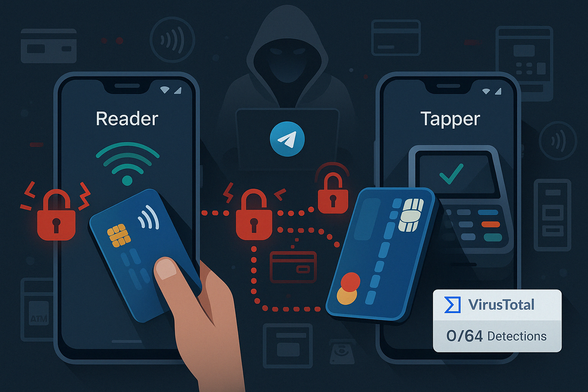🚨 A new Android malware campaign is using NFC relay attacks to clone credit cards — and it’s nearly invisible to antivirus tools.
Security researchers have discovered 'SuperCard X', a malware-as-a-service (MaaS) platform that allows cybercriminals to steal card data and make contactless payments using compromised Android devices.
Key highlights from the report:
- Distributed via social engineering scams through fake SMS or WhatsApp messages
- Victims are tricked into installing a malicious app disguised as a bank “verification” tool
- Once installed, it uses NFC to read card chip data and sends it to a second attacker device
- Attackers use a companion app to emulate the victim’s card and make payments or ATM withdrawals
🔍 What makes it dangerous:
- SuperCard X requests minimal permissions, making it hard to detect
- It uses ATR-based card emulation and mutual TLS (mTLS) for secure communication
- Malware is not flagged by any antivirus engines on VirusTotal
- Transactions are small, instant, and look legitimate to banks — making them harder to detect or reverse
🛡️ Google responded saying Play Protect is active and currently no such apps are listed on Google Play. But since these apps spread outside the store, Android users remain at risk — especially if they sideload apps or fall for impersonation scams.
This is a textbook example of how mobile payment infrastructure is being exploited — and why NFC security deserves more attention in mobile-first threat models.
At @Efani we’re committed to helping protect high-risk users from silent, evasive mobile threats just like this.
#Cybersecurity #AndroidMalware #NFC #MobileSecurity #EfaniSecure #SuperCardX #FintechFraud #MalwareAsAService

